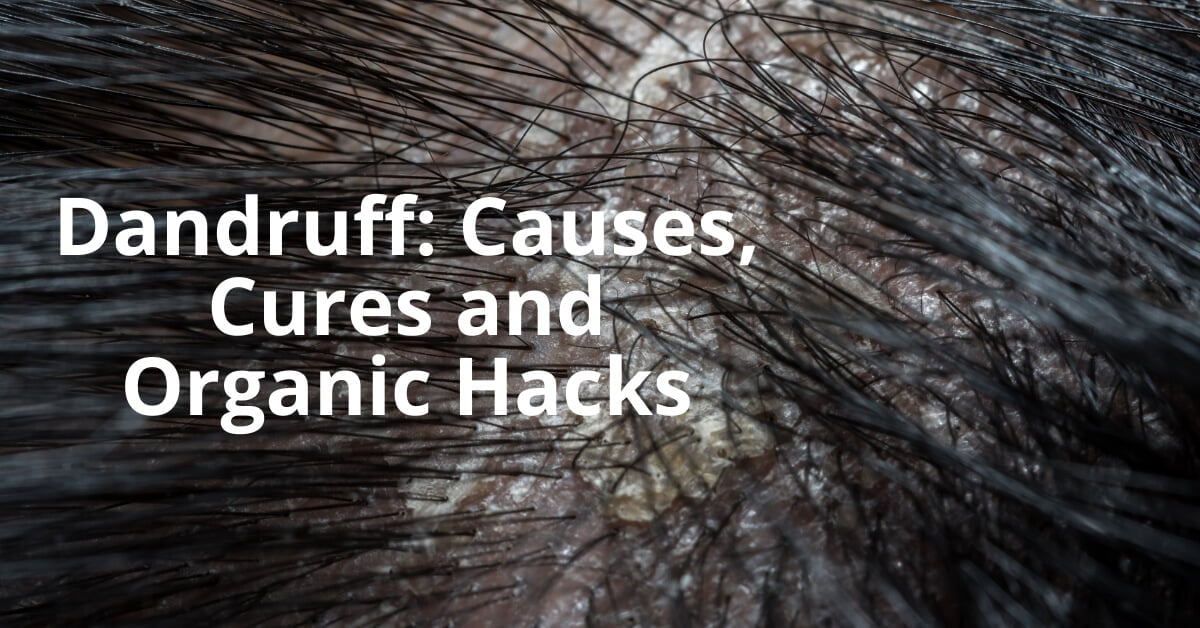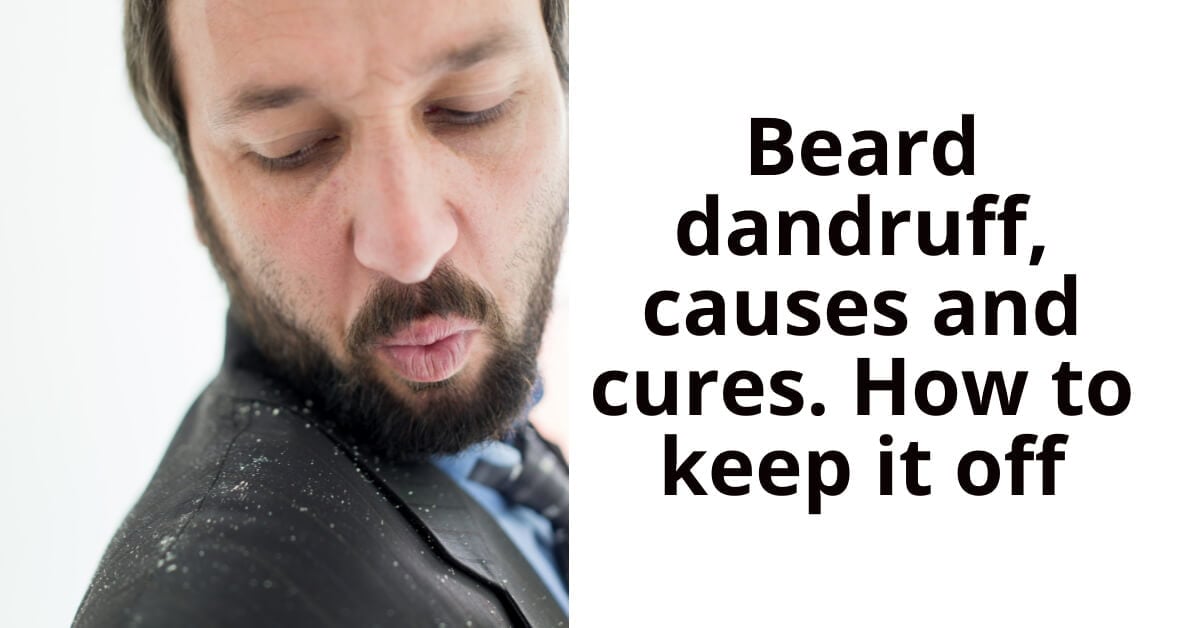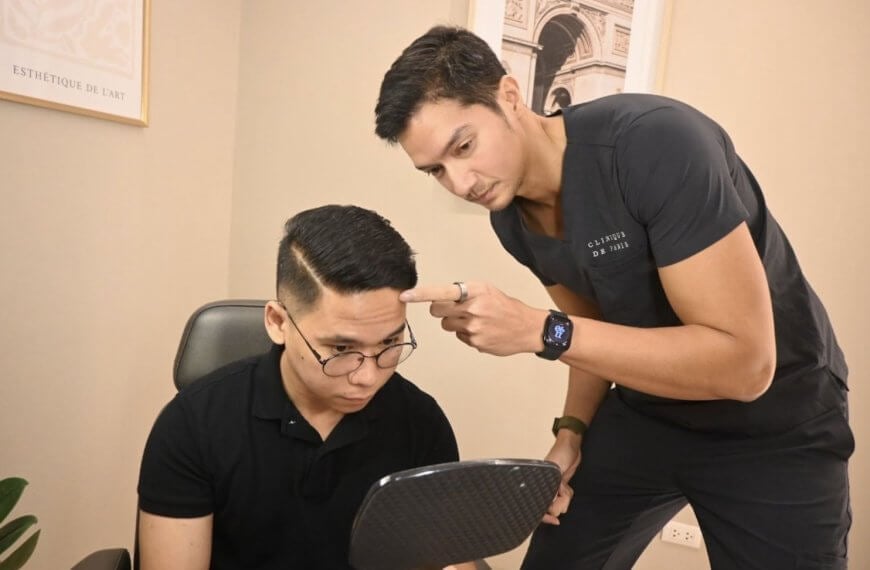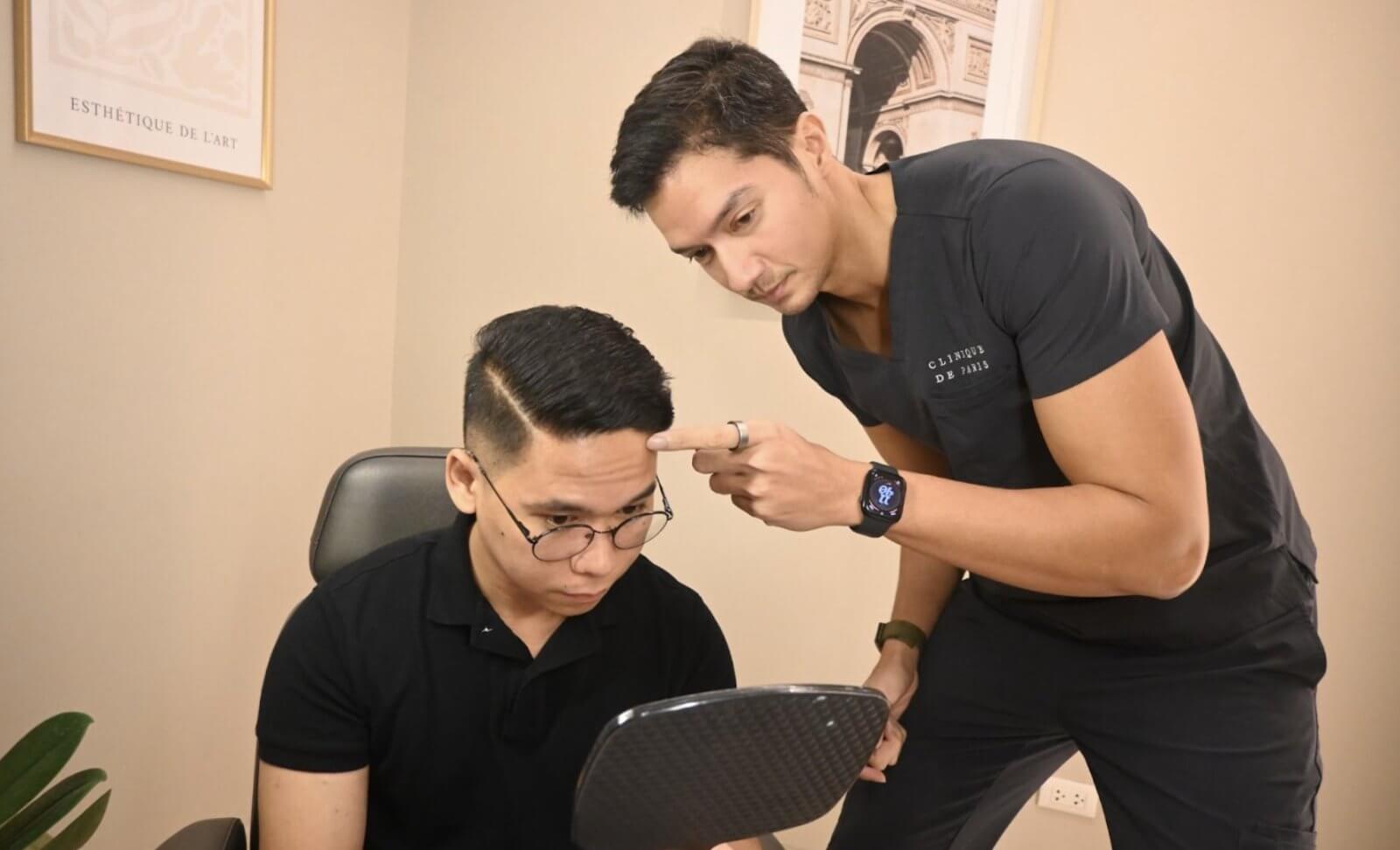Dandruff is a common scalp condition that affects many people. It occurs when dead skin cells on the scalp shed in the form of white flakes, which can be both uncomfortable and embarrassing. While dandruff is not a serious health condition, it can be a sign of an underlying issue, such as a fungal infection or seborrheic dermatitis, that should be treated.
If left untreated, dandruff can cause further irritation and inflammation of the scalp, leading to additional symptoms such as itching and redness. In severe cases, it can even lead to hair loss. In addition to physical discomfort, dandruff can also impact a person’s self-esteem and confidence, particularly if it is visible on their clothing or hair.
Fortunately, there are several treatment options available for dandruff, including over-the-counter shampoos, natural remedies, and prescription medications. Seeking medical advice from a doctor or dermatologist can help to determine the cause of your dandruff and recommend the most appropriate treatment plan. By treating dandruff, you can not only reduce uncomfortable symptoms but also improve your overall scalp health and boost your confidence.
Dandruff is Common
Dandruff is a common scalp condition that occurs when the scalp becomes too dry or too oily. It causes white flakes of dead skin to appear on the scalp and in the hair. Dandruff can be an annoying and embarrassing problem, but there are several ways to get rid of it:
- Use an anti-dandruff shampoo: The most common way to treat dandruff is to use an anti-dandruff shampoo. Look for shampoos that contain ingredients like salicylic acid, coal tar, or ketoconazole, as they can help to remove the flakes and reduce inflammation. Use the shampoo according to the instructions on the label, and rinse your hair thoroughly.
- Try natural remedies: Some people prefer to use natural remedies to treat dandruff. Some options include applying tea tree oil or coconut oil to the scalp, using aloe vera gel, or applying apple cider vinegar. These remedies may be helpful, but scientific evidence to support their effectiveness is limited.
- Manage stress: Stress can worsen dandruff, so finding ways to manage stress may help reduce the symptoms. Meditation, exercise, and deep breathing are all ways to reduce stress levels.
- Maintain good hygiene: Keeping your hair and scalp clean is important to prevent the buildup of oil and dead skin cells that can lead to dandruff. Wash your hair regularly, and use a clean towel to dry your hair.
- Avoid certain hair products: Some hair products, such as gels, mousses, and hairsprays, can make dandruff worse. Avoid using these products or choose ones that are labeled as “dandruff-friendly.”
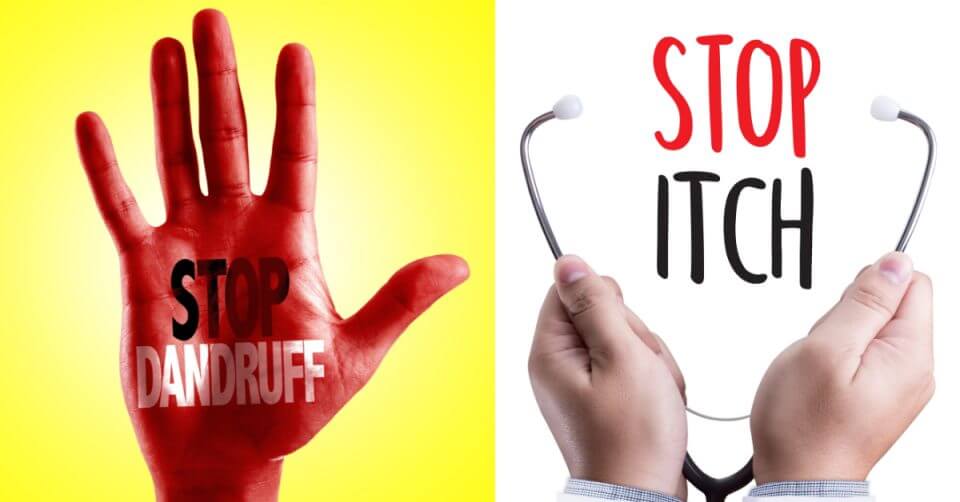
FAQ on Dandruff
- What is dandruff, and what causes it? Dandruff is a common scalp condition that occurs when dead skin cells shed from the scalp in the form of white flakes. The causes of dandruff can vary, but common factors include oily skin, dry skin, skin conditions like eczema or psoriasis, and the overgrowth of yeast on the scalp.
- How can I treat dandruff at home? You can try treating dandruff at home by using an anti-dandruff shampoo that contains ingredients like salicylic acid, coal tar, or ketoconazole. You can also try natural remedies like tea tree oil or coconut oil. Additionally, it’s important to maintain good hygiene by washing your hair regularly and keeping your scalp clean.
- What are the best anti-dandruff shampoos? There are several anti-dandruff shampoos available on the market, but the best ones contain ingredients like salicylic acid, coal tar, or ketoconazole. Some popular options include Head & Shoulders, Nizoral, and Selsun Blue.
- How long does it take to get rid of dandruff? The amount of time it takes to get rid of dandruff can vary depending on the severity of the condition and the treatment method used. Generally, it can take several weeks of consistent treatment to see results.
- Can stress cause dandruff? Stress can be a contributing factor to dandruff, as it can cause an increase in oil production on the scalp. Managing stress through meditation, exercise, or other methods can help to reduce the symptoms of dandruff.
- When should I see a doctor about my dandruff? If over-the-counter treatments and home remedies aren’t effective in treating your dandruff, or if you have other symptoms like redness, itching, or sores on your scalp, you should see a doctor or dermatologist. They can provide a diagnosis and recommend more specialized treatments if necessary.
Dandruff Organic hacks
If you prefer natural or organic remedies for treating dandruff, here are some hacks that you may find useful:
- Tea Tree Oil: Tea tree oil has antifungal and antibacterial properties that can help to reduce inflammation and irritation on the scalp. Mix a few drops of tea tree oil with coconut oil or olive oil, and massage the mixture into your scalp. Leave it on for 30 minutes before washing it off with an anti-dandruff shampoo.
- Aloe Vera: Aloe vera gel has anti-inflammatory properties that can soothe an itchy scalp. Apply aloe vera gel directly to your scalp, and leave it on for 15-20 minutes before washing it off with shampoo.
- Apple Cider Vinegar: Apple cider vinegar can help to restore the pH balance of the scalp and reduce the growth of yeast. Mix equal parts of apple cider vinegar and water, and apply the mixture to your scalp. Leave it on for 15-20 minutes before washing it off with shampoo.
- Coconut Oil: Coconut oil has moisturizing properties that can help to reduce dryness and flakiness on the scalp. Massage a few tablespoons of coconut oil into your scalp, and leave it on for at least an hour before washing it off with shampoo.
- Baking Soda: Baking soda can help to exfoliate the scalp and remove dead skin cells. Mix a tablespoon of baking soda with water to form a paste, and apply it to your scalp. Massage it in gently, and leave it on for 10-15 minutes before washing it off with shampoo.
While these organic hacks may be helpful in reducing the symptoms of dandruff, it’s important to note that scientific evidence to support their effectiveness is limited. If your dandruff persists or worsens, you should consult a doctor or dermatologist for further advice.
What are the popular Anti-Dandruff Shampoos available?
Here are 10 brands that offer anti-dandruff shampoos that are highly recommended for combating dandruff:
- Head & Shoulders
- Nizoral
- Selsun Blue
- Dove DermaCare Scalp
- Neutrogena T/Gel
- Jason Dandruff Relief
- Redken Scalp Relief
- Maple Holistics Sage Shampoo
- Art Naturals Scalp 18
- Biotique Bio Neem Margosa Anti-Dandruff Shampoo
These brands offer a range of anti-dandruff shampoos with different active ingredients, such as ketoconazole, zinc pyrithione, coal tar, or natural extracts like neem and sage. It’s important to choose the right shampoo for your specific type of dandruff and to follow the instructions on the label for best results. If you have persistent or severe dandruff, it may be a good idea to see a dermatologist for further evaluation and treatment.
Always Seek Medical Attention
It’s always a good idea to seek medical advice from a doctor if you’re experiencing persistent or severe dandruff symptoms. While dandruff is a common scalp condition, it can sometimes be a sign of an underlying medical condition that requires treatment.
A doctor or dermatologist can help to diagnose the cause of your dandruff and recommend appropriate treatments. They may also be able to rule out other skin conditions or infections that may be causing your symptoms.
Additionally, if you’re using over-the-counter anti-dandruff shampoos or natural remedies and aren’t seeing any improvement, it’s a good idea to seek medical advice. A doctor may be able to prescribe a stronger anti-dandruff shampoo or other treatments that can be more effective in reducing your symptoms.
Overall, seeking medical advice is an important step in managing your dandruff and ensuring that your symptoms aren’t a sign of a more serious underlying condition.
Benefits of being dandruff-free include:
- Improved scalp health: Dandruff can be a sign of an unhealthy scalp, and getting rid of it can lead to a healthier scalp overall.
- Better hair appearance: Dandruff can make hair look dull and lifeless. Getting rid of dandruff can improve the appearance and shine of your hair.
- Boosted confidence: Dandruff can be embarrassing, and getting rid of it can help you feel more confident in social situations.
Overall, the best way to get rid of dandruff is to use an anti-dandruff shampoo and maintain good hygiene. However, if you find that these methods are not effective, you should consult a dermatologist for further advice.
In conclusion, dandruff is a common scalp condition that can be uncomfortable and embarrassing for those who experience it. While it is not a serious health condition, it can be a sign of an underlying issue that should be treated to prevent further discomfort and potential complications. Seeking medical advice from a doctor or dermatologist can help to determine the cause of dandruff and recommend appropriate treatment options, such as over-the-counter shampoos, natural remedies, or prescription medications.
By treating dandruff, individuals can improve their scalp health, reduce uncomfortable symptoms such as itching and redness, and boost their confidence and self-esteem. It’s important to maintain good hygiene practices, use appropriate hair products, and manage stress levels to prevent dandruff from developing in the first place. Overall, with proper treatment and care, dandruff can be effectively managed, and individuals can enjoy healthy and comfortable scalps.
